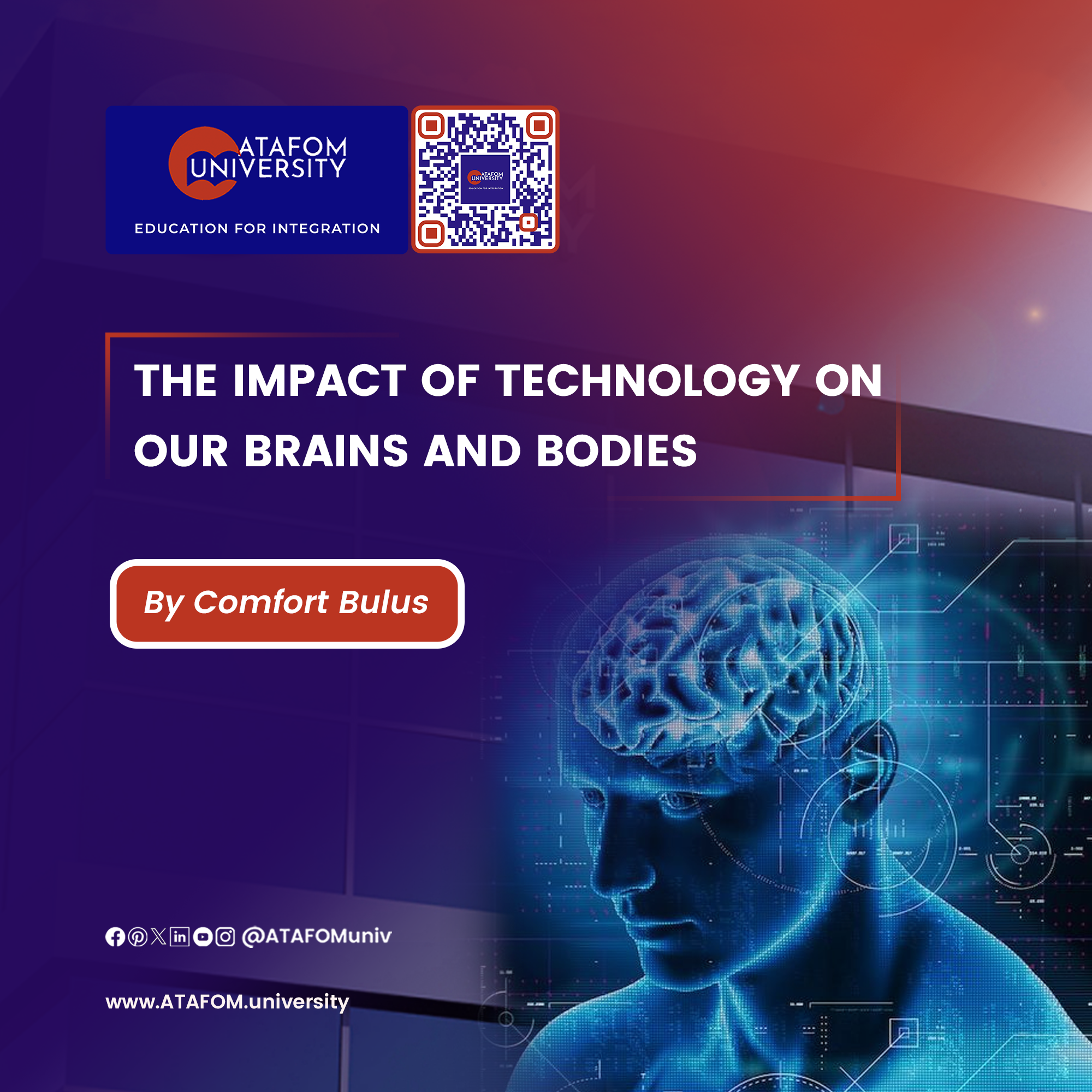Technology has a huge impact on our self-relationship, generating physical discomfort and emotions of failure. To maintain a healthy use of technology, it’s critical to remember that our minds are malleable and may be influenced in both positive and negative ways. Five physical ways in which technology might affect us are examined, along with suggestions for future management of these impacts.
- Use of technology can cause structural changes in the brain.
Frequent media multitasking can lead to long-term concentration problems, impacting academic, personal, and professional performance. Researchers from France and the United Kingdom discovered that frequent media multitasking may contribute to grey matter loss in the anterior cingulate cortex, a brain region involved in attention management.
Suggestion: Turn off most alerts and notifications, set aside special time for concentration, and avoid checking emails or messages to combat this.
- The use of technology can cause wear and tear on the brain’s pleasure centre.
Dopamine, a neurotransmitter, can become overstimulated as a result of continual electronic inputs such as text messages, YouTube videos, images, and video games, making our brain’s pleasure centres less sensitive to other pleasurable experiences.
Suggestion: To combat this, swap social media news sources for home-cooked meals and avoid using cell phones. Making more time for these experiences, in-person chats can be more fun and increase our comprehension of life updates.
- The usage of technology may reduce physical exercise.
Because they distract from physical exercise, digital gadgets can lead to sedentary lifestyles and obesity. Balancing technology use with physical activity is critical to living a healthy lifestyle.
Suggestion: Schedule weekly workouts with friends, such as strolling, hiking, or taking a workout class, to avoid this. This can let you preserve social time while avoiding the sensation of forsaking exercise.
- Technology can sometimes impair our memories.
According to research, people are losing more information as a result of the “Google Effect,” a phenomenon in which we rely on digital platforms to get information. According to one study, participants who were told the computer would erase their work scored better on a task requiring them to type 40 trivia facts. This occurrence is especially troubling because cognitive diseases such as Alzheimer’s disease may be linked to this incapacity to maximise cognitive capacities.
Suggestion: Researchers recommend exercising memory techniques such as memorising phone numbers, Bible phrases, or writing down noteworthy quotes on paper to combat this.
- The usage of technology has the potential to reduce our sleep quality.
People who frequently check their phones before bed consume blue light, which disturbs the natural sleep process and can lead to decreased sleep. This can also lead to disturbed sleep as a result of thoughts on social media posts or news. Sleep deprivation raises the likelihood of psychological problems such as anxiety and depression, as well as lower brain activity, which has an influence on productivity, physical safety, and weight management
Suggestion: Reclaim the last hour before bed as a technology-free zone for three nights in a row to boost sleep. Small, measurable goals can lead to increased follow-through.
CONCLUDING THOUGHTS:
If you’re feeling overwhelmed by technology, listen to your body and create intentional intervals of minimal use to re-establish stronger relationships with yourself and others. Worthy of note is that every student at ATAFOM University International is valued for their academic performance and confidence in an international community. We appreciate the use of technology and encourage both academic and non-academic activities in the educational growth cycle. Enrol with us today for an exceptional educational experience.


